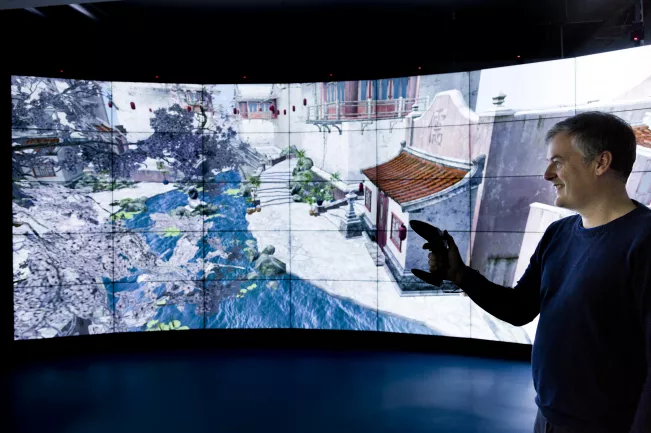Communications and Marketing
Improved Real-time Visualisation of Simulation Data
The Institute of Visual Computing (IVC) and the Programming Methodology research group at Hochschule Bonn-Rhein-Sieg’s Computer Science department are planning to work with SIDACT, a private company, to develop visualisation and compression processes for the accelerated and continuous transmission and processing of simulation data. The project will receive funding until September 2020 from the German Federal Ministry for Economic Affairs and Energy’s Central Innovation Programme for SMEs (ZIM), whereby H-BRS will receive around €190,000.

Numeric simulations are used in product development to identify and address weak points even before initial prototyping. Their use increases the cost-efficiency, product safety and quality for the companies concerned. Due to the centralisation of IT infrastructures and the increasing use of so-called cloud technologies, the simulation data is often created at a place that is geographically remote from the responsible design engineer. Because of its sheer volume, the transmission and processing of the data is often problematic.
This is why the objective of IVC and Programming Methodology research group’s “Level-of-Detail-Methods for the Progressive Visualisation on Simulation Data (LoDProViS)” project is the development of new compression processes for such simulation data. The researchers, headed up by Professors of Computer Science André Hinkenjann and Andreas Priesnitz want to use a new compression algorithm to efficiently visualise large volumes of data in real time despite transmission delays.
Efficient Visualisation and Analysis of Simulation Data
The aim is to achieve higher compression rates than have hitherto been possible by using so-called Level-of-Detail techniques. In addition, this approach makes it possible to redesign the processes used for the visualisation and analysis of simulation data. The idea is to use appropriate programming methods to distribute visualisation and data caching over independent software components to facilitate various combinations and separate developments. As such, the researchers are looking into how extremely large and remote simulation models can be visualised and analysed despite the restrictions due to the data volumes. The 3D visualisation application to be developed for this will then be combined with other components to create a novel visual system for the analysis of cloud-based simulation data.
The project findings could then be used in other areas of Computer Aided Engineering (CAE) such as car crash simulations. In collaboration with SIDACT, the plan is to present the potential project results to car manufacturers and post-processor manufacturers, in addition to which there are plans afoot to licence the technology commercial purposes.
Sie haben noch Fragen?

André Hinkenjann
Founding director of the Institute of Visual Computing, Research Professor Computer Graphics and Interactive Environments
Research fields
Location
Sankt Augustin
Room
C 167
Address
Grantham-Allee 20
53757, Sankt Augustin
Telephone
+49 2241 865 229
Research fields
Location
Sankt Augustin
Room
C 269
Address
Grantham-Allee 20
53757, Sankt Augustin
Contact hours
We: 12:30-13:30
Telephone
+49 2241 865 204
[Archive] Eva Tritschler
Press and Public Relations, Spokeswoman/Editor-in-Chief of the university magazine doppelpunkt:
Location
Sankt Augustin
Address
Grantham-Allee 20
53757 Sankt Augustin
Links
Further links